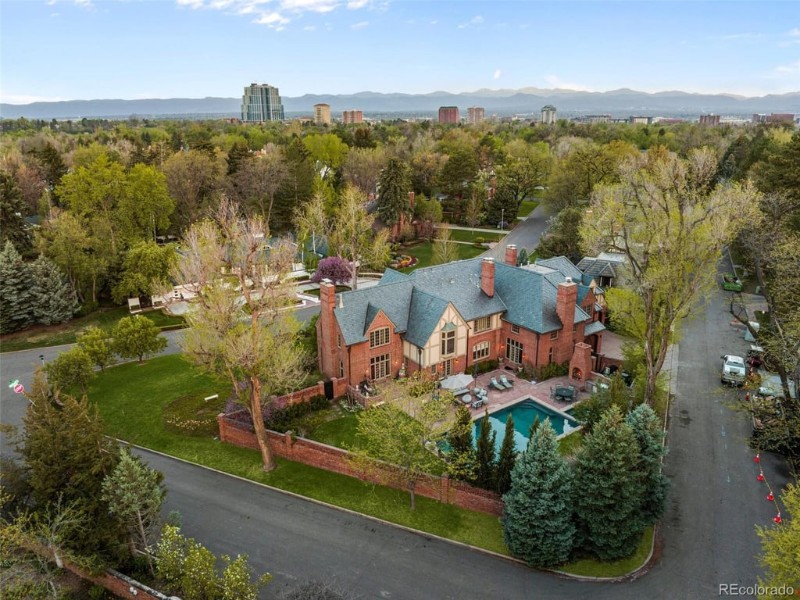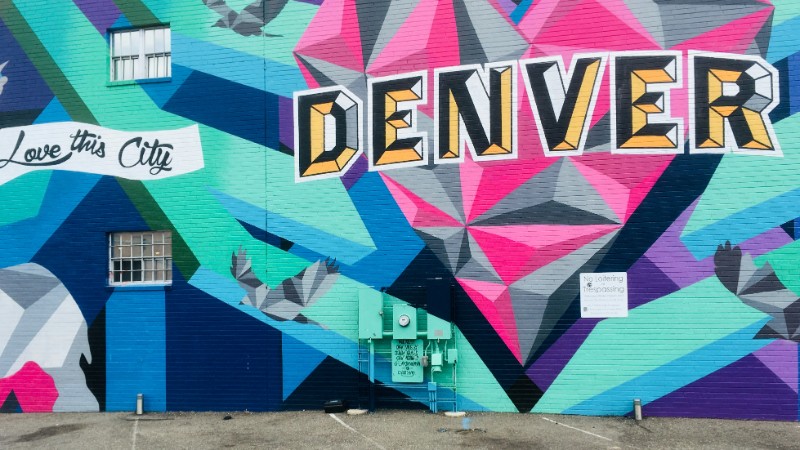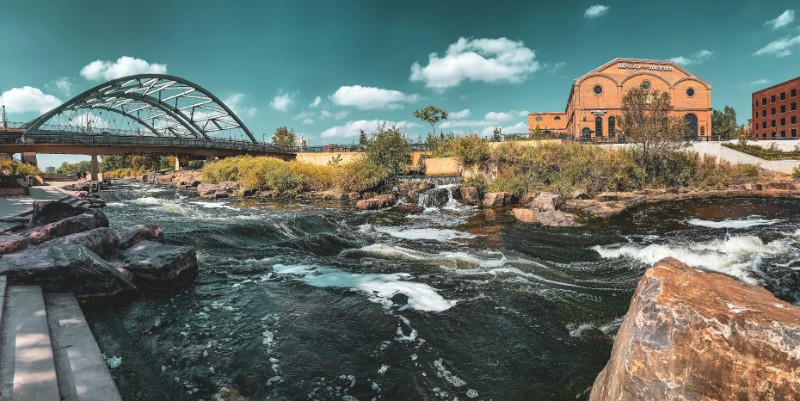Denver, Colorado, is one of the country’s largest and most populous cities, widely due to relocating efforts. People are drawn to its booming economy, sports teams, outdoor recreation, food, and nightlife. There are so many things to do, see, and love about this city. Sitting 5,280 feet above sea level, Denver is indeed the Mile High City.
Early in its history, Colorado served as a stopover for traders and members of the nomadic Arapaho tribe. In 1858, gold was discovered in the region, leading to a gold rush. People flocked to the region, ensuring the city’s steady growth. Eventually, the area would be called Denver, after James W. Denver, then governor of the Kansas Territory.
If you’re still on the fence about relocating to Denver, CO, this guide is for you. What’s it like living one mile high in the sky, and why should you jump at the opportunity? Read on to find out more.
RESEARCH AND PREPARATION
Before you look for a property and contact the movers, here’s a quick run-through of some of the significant aspects of life in the city:
-
Geography and climate
The City of Denver, covering a total area of 153.08 square miles, is nestled on the western edge of the High Plains in the South Platte River Valley. To the east of downtown, the Cherry Creek and the South Platte Rivers converge, less than 15 miles from the foothills of the Rocky Mountains.
The climate in Denver is arid and sunny because of its elevation and location at the foothills of the Rocky Mountains. In fact, the region gets more than 300 days of sunshine and only receives about 8-15 inches of rain annually. Denver also has relatively low humidity, even in summer. On average, the city receives around 56.5 inches of snow annually, but the snow doesn’t stick to the ground for long.
While the general weather in Denver is mild most of the year, it can also be quite unpredictable. In some cases, temperatures can rise or fall by around 40 degrees in just a couple of hours. Wearing sunscreen and layers is vital.
-
Neighborhoods
If you’re considering relocating to Denver, CO, you have no shortage of unique neighborhoods to choose from. The city has over 80 neighborhoods sprinkled throughout its nine regions:
- Central
- East
- North
- South
- West
- Northeast
- Northwest
- Southeast
- Southwest
For a more detailed list of Denver neighborhoods, you can check out the official Denver Tourism website.
-
Cost of living
The cost of living in Denver, CO is average. The cost of living is calculated based on a number of factors, such as housing, average salary, utilities, and the real estate market of an area. According to Payscale.com, the cost of living in Denver is about 11% higher than the national average. The cost of utilities, food, and transportation are below or around the national average, while housing prices are higher than average.
-
Job market and career opportunities
One of the things that makes Denver, CO, attractive to residents and those looking to relocate is the robust job market and stable economy. The city has a number of critical industries, including but not limited to aerospace, bioscience, defense and homeland security, healthcare, electronics, energy and natural resources, tourism, and outdoor recreation. The largest employers in the city include the national and local government, the University of Colorado Systems, and healthcare providers like Centura Health and HealthONECorporation.
Tourism is quite significant in the region as well, as the city attracts over 17 million visitors annually.
-
Education and schools
The Denver County School District serves the entire city of Denver and surrounding areas. The school district operates and manages around 157 public elementary, middle, and high schools. This city also has approximately 220 private schools.
Denver also has several universities, colleges, and institutions for higher education. These include the University of Colorado Denver, the University of Denver, and Regis University.
HOUSING AND REAL ESTATE

Potential homebuyers and renters planning to move to Denver, CO can also benefit from learning more about the local housing market. This gives them a better idea of what to expect in terms of home and rent prices, real estate tax, and mortgage rates. It also gives buyers a better idea of which neighborhoods and communities best suit their wants and needs.
-
Real estate market trends
Denver, CO has a competitive housing market. The average listing home price in the city increased by 1.7% in the last 12 months. Compared to the national average, the median listing home price of homes in Denver is higher by around 20%. Homes stayed on the market for an average of 56 days and sold for around the asking price.
As of November 2023, Denver was a seller’s market, meaning that the demand for houses is higher than the current housing stock. This typically leads to buyers putting forward more competitive offers that can lead to bidding wars, especially for highly desirable properties.
Close to 50% of residents own their homes in Denver, Colorado. According to the Census Bureau, the average rent price in the area is around $1,665. People relocating to the city are typically from South California, Texas, Washington, and New York.
-
Popular neighborhoods
Whether you’re looking for a neighborhood with nightlife opportunities, or one that’s in close proximity to outdoor adventures and activities like hiking, rafting, or skiing, there’s a place for you in Denver. Each neighborhood has its own advantages, vibe, and amenities. Denver neighborhoods also have a wide variety of property types at different price points.
Here are some of the most popular ones sorted by their dominant vibe and features:
- Quiet suburbsIf you’re looking for a great place to retire or start a family, quiet suburban neighborhoods are perfect for you. Fortunately, Denver has plenty of parks and green spaces despite its urban feel. Neighborhoods like Sloan’s Lake, Glendale, Centennial, or Central Park impart a serene vibe. Homes in these Denver neighborhoods range from ranch-style houses to row houses and townhomes. These neighborhoods typically also have small public parks and playgrounds nearby, shops, and top-rated schools.
- Trendy areasDenver has a thriving culture, music, and arts scene. A good way to experience all of these is to live in trendy neighborhoods within walking distance of popular bars, art galleries, and museums. Neighborhoods like Capitol Hill, Five Points, River North Art District (RiNo), Hampden South, Lower Downtown Denver (LoDo), and Highlands are preferred by young professionals, art enthusiasts, and those working in tech. LoDo is a few minutes away from the Coors Field and Ball Arena, and RiNo is notable for its music venues, art galleries, and breweries.
- The commercial heart of DenverIf you want to live in the heart of it all, there are a lot of properties for rent or sale in the commercial centers of Denver. These neighborhoods include the Central Business District, Civic Center, and North Capitol Hill. With these neighborhoods, shops, restaurants, museums, and offices are just a few minutes away.
-
Renting vs. buying

Renting and buying properties have their own advantages and downsides. Ultimately, you have to consider your needs and those of your family before deciding which option to choose.
For example, purchasing a home has more advantages if you intend to live in the area for at least 5 years or you’re interested in real estate investment. Renting, on the other hand, affords you flexibility and mobility.
Here are some of the pros and cons of renting and buying:
RENTING BUYING PROS You get to know the city before you settle down on a neighborhood or property. Owning a home in a competitive housing market can give you stability and a higher return on investment Many apartments, especially in the downtown area, have great amenities and features. On average, Colorado mortgage rates are lower than the rest of the country. Maintenance is the landowner’s or the building administration’s responsibility. Owning a home factors into your equity. Utility bills and (renter’s) insurance are more affordable, given the smaller space. Colorado has a low property tax rate vs the rest of the country You have more flexibility in choosing where to live. You have more control over the size and appearance of your living space CONS Rent prices increase annually You’re required to have a large upfront investment. You can’t get tax deductions. You’re required to pay annual fees like homeowner’s insurance, property taxes, etc. You can’t earn home equity. Maintaining and renovating your home can be costly. Having pets is expensive and difficult. Moving is difficult and expensive. You can’t renovate or personalize the property to your liking. You have no say over Homeowner’s Association dues and rules. -
Rental process
Leasing your first apartment in Denver is relatively straightforward, but the challenge lies in choosing the apartment. Here’s a rundown of the rental process in Denver, as well as a couple of tips:
- List down your non-negotiables. Rooms? Location? Pet policies? Make a list of must-haves. Nice-to-haves should be at the bottom of your list.
- Set your budget. Ideally, rent should only take up around 30% or less of your monthly income after taxes. Include rent-related costs such as security deposit, utilities, home association fees, and so on.
- Choose the right rental. Aside from location and features, consider security, amenities, maintenance, connectivity, and other rules and regulations.
- Fill out the application form and lease. According to the Fair Housing Act, landlords are prohibited from discriminating against tenants based on their origin, gender, race, religion, disability, or family status.
- Pay the deposit. Unlike other states, Colorado has no limit when it comes to security deposits. A landlord is free to ask for any amount from a tenant.
-
Homebuying process

The home buying process involves quite a number of steps. That’s why whether you’re a first-time buyer or a seasoned investor, buyers often choose to work with real estate agents or Realtors. The best of these professionals will guide you throughout the buying process and advocate for your best interests.
- Start looking for a home. With your budget and list of non-negotiables and nice-to-haves in mind, check out the available properties in your desired area. You can ask your Realtor for recommendations based on your wishlist, and browse online. You can also ask family and friends for leads or recommendations. Alternatively, you can drive around your desired neighborhood to see if there are any “For Sale” signs around. Browse homes for sale in Denver.
- Review your financing options. There are plenty of loans and mortgages available especially for first-time homebuyers. Typically, buyers pay a minimum downpayment of 3% or 5% on conventional loans. If you go for the minimum, lenders will charge you higher monthly payments on your principal and interest.
- Get pre-approved. Shop around for a good mortgage and get pre-approved. Sellers sometimes don’t even consider offers without pre-approvals so this is a vital step. Keep in mind that mortgage interest rates and fees differ, depending on the lender. Once you’ve settled on a lender, prepare your documents (employment certification, credit score information, tax returns, etc.). When your application is approved, you’ll be given a pre-approval letter, which will be important when making an offer.
- Make an offer. Factor in other costs into your budget, such as closing costs, fees, repairs, taxes, and new home purchases like appliances. Work with your Realtor on an offer price. Your agent will represent you during negotiations, and the seller can choose to accept your offer or make a counteroffer. This process may entail a bit of back and forth.
- Have the property inspected. This step will show you if the house is structurally sound and if key components (roof, basement, windows, HVAC systems, etc.) won’t cause you grief down the road. Learn how to read a home inspection report. You can negotiate repairs with the seller or, upon the advice of your Realtor, choose not to pursue the transaction.
- The last step. If the house passes the inspection, you can now proceed to closing. This is a meeting where documents are signed, closing costs are paid, and transfer of ownership occurs.
MOVING LOGISTICS

Congratulations! You’ve found the perfect house or apartment in Denver, Colorado! The next step might be the most physically and mentally challenging, especially if you’re on a deadline.
-
Planning and budgeting your move
Making a checklist takes a significant load off your mind. Type out every detail, from obtaining boxes, contacting your service providers, and sending out your forwarding address. Aside from tying up loose ends in your old dwelling, have all the information you need to start your new life in Denver. Forbes Home has a detailed guide on planning for a move. Don’t forget to allocate a budget for the move. Factor in everything, including contingencies.
-
Hiring movers or DIY
It’s cheaper to do it yourself, especially if you can get as many friends and family members to help you. While less costly, DIY is time consuming and can be exhausting for everyone involved.
If you decide to hire professionals, make sure to shortlist the most reliable companies in your area. If you’re moving out of state, it’s best to hire cross-country movers.
SETTLING IN

Welcome to your new home in Denver, CO! While the relocation may have been quite the process, it’s now time to settle in. Here are a few things to keep in mind:
-
Set up utilities and services
Fortunately, most of Denver’s utility providers are online. Manage your account and pay your water bills at the Denver Water website. The Metro Denver EDC has information on energy and telecommunications providers. For other utilities-related information, you can check out the Denver government website. The city also has guidelines on trash and recycling on its website.
While you’re at it, getting registered to vote in Denver is also a good idea. You can also check out the local DMV website on how to update your driver’s license and get an out-of-state vehicle registration.
-
Explore Denver’s culture
Denver is an excellent city for walking and biking, made even better by the generally sunny weather. Many shops and major landmarks are within walking or cycling distance, and the city has plenty of walking and bike trails, like the Cherry Creek Bike Path.
You can also explore the downtown area using the local bus and train service. However, if you’re looking to check out areas outside the city center, you may want to take your vehicle. Buses and trains may not be available in some of these areas.
-
Enjoy the great outdoors
There are many ways to enjoy the great outdoors in Denver. Sports fans already know that Denver is home to the Denver Nuggets, the Colorado Rockies, the Colorado Avalanche, and the Denver Broncos.
Residents who love skiing will be pleased to know that Denver is just 75 miles from the best ski destinations in the US, like Vail. For those looking to hike, run, and explore the wilderness in this part of Colorado, you can enjoy a weekend in the Rocky Mountain National Park or Red Rocks Park. Denver Parks and Recreation manages around 200 parks and several neighborhood parks, such as Washington Park, City Park, and Confluence Park.
After your outdoor fun, check out some of Denver’s fascinating indoor attractions. You can visit the Museum of Nature and Science, watch shows at the Denver Center for Performing Arts, or take a tour of the Denver Art Museum.
ENJOY A HASSLE-FREE MOVE TO DENVER, COLORADO WITH USAJ REALTY
Usaj (pronounced “you say”) Realty is a locally owned real estate firm that has been in the business for more than a decade. The Usaj Team takes the guesswork out of relocating to Denver, CO, Summit County, and Val Valley. From choosing the right neighborhood to closing on a home, this talented and passionate group of real estate professionals is determined to help you achieve your real estate goals.





